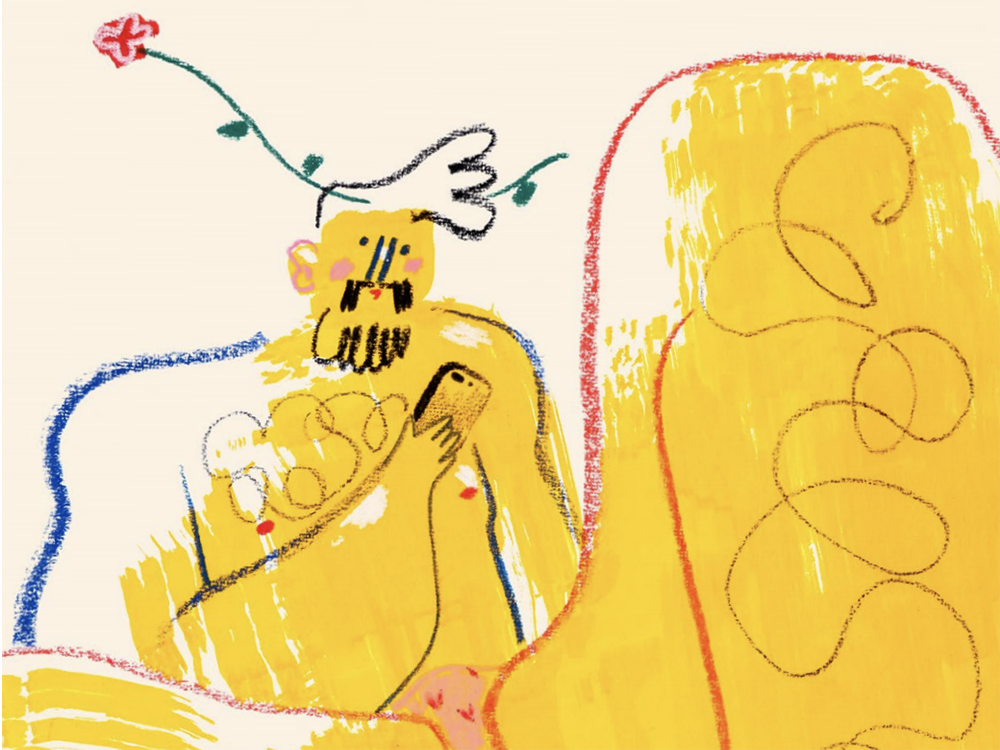Feb 2, 2021 Society
How dating-app aesthetics have taken the joy out of hooking up.
I used to decry the use of dating (let’s be honest, hook-up) apps, especially as a gay man observing in real time the collective withdrawal from sex-on-site venues these apps induced (RIP Urge Bar). But now, dating apps are the primary facilitators of the sex lives of lonely straights and sluttish gays alike. I’ve certainly assimilated apps’ cues and conventions to the point that I carry the same rigorously objectifying gaze reserved for the profile scroll out with me into the world, appraising passers-by (and even friends and family) in the same way I would potential hook-ups.
Should it bother me, or anyone else, that we seem to be heading in this direction of comfortably and quite normally framing each other and ourselves as vaguely erotic experiences, available to the fellow consumer should they express an interest, so long as our packaging is alluring enough?
On dating apps, this ends up meaning more than just being hot. It’s about the pitch. It’s about how you posture yourself across all of your social media platforms. Not just dating and hook-up apps, but also your Facebook, your Instagram, even your LinkedIn if you’re a white-collar human or if you labour in the vaguely satanic nexus of technology and manipulation that is advertising. It’s about insinuating things about yourself that aren’t necessarily true, which is totally forgivable these days, because so long as your social-media presence strikes a reasonable enough balance between factual and aspirational, you’re not lying; you’re just ambitious! And ambition is a boon when you’re pitching yourself as a consummate erotic consumer experience (though this is mostly applicable to straight dating apps and not gay hook-up apps, where neither party is pretending to want anything beyond sexual gratification; I mean, if you think masc4masc isn’t going to throw you aside afterwards like you’re a used condom, you’re deluded). Mix all these magical ingredients together in just the right way and you might snag a decent line.
What do I mean by “insinuating things about yourself that aren’t necessarily true”? Well, I’m not just talking about photoshopping or filtering yourself into Zendaya (though that’s obviously a given). I’m talking about uselessly listing your favourite songs and movies in an app which you use only to arrange anonymous trysts under bridges, in bathroom stalls or strangers’ apartments. I’m talking about putting a wreath of daisies in your hair, even though you hate nature and get horrendous hay fever every summer, and taking a pic with a soft focus to make you look like a 90s daytime-television pin-up (if only to hide the inevitable scaliness that the Auckland humidity brings out). I’m talking about making the only picture of you in a suit from when you were a groomsman at a wedding your profile pic, which has the dual merit of confusing would-be suitors over which one you are from a line-up of more chiselled, more handsome, more classically built guys. I’m talking about using cunning angles and lighting techniques and hijacking shiny locations to give the impression of being of a certain affluence, an affluence whose worshipful valuation underpins most interactions you’ll have on any and all dating apps. Heck, you’ll probably encounter it in most bars that don’t have an overt kink and fetish theme (because I’m telling you, those kink kids have their priorities in the right place).
Is it naive of me to ask we separate sex from this compulsive-competitive signalling of lifestyle? I understand the convenience of most apps and how, to some extent, the gamification of society has streamlined a lot of services for the better (by which I mean everything being a mere swipe, scan, or click away), but I think where sex is concerned we should stop puppeteering our interests with overly calculated avatars. Because it stops being about sex and starts being about pissing contests over who projects an image of greater success and refinement.
I personally miss the rough and tumble of weekends out before the smartphone, before meeting a stranger in a bar became an experience that could be screened and premeditated through an app; when you didn’t have to passively convey anything about how well adjusted you are to said stranger first. Does having an app somehow make it better? Is it an issue of safety? Because the last time I checked, a stranger registered with a dating app was still a stranger. It doesn’t minimise the risk of going home with somebody you don’t know in the wee hours of the morning, any more than a paper shawl’s gonna protect you from the rain. The only advantage it gives you is knowing how they look in board shorts standing next to a recently deceased marlin.






